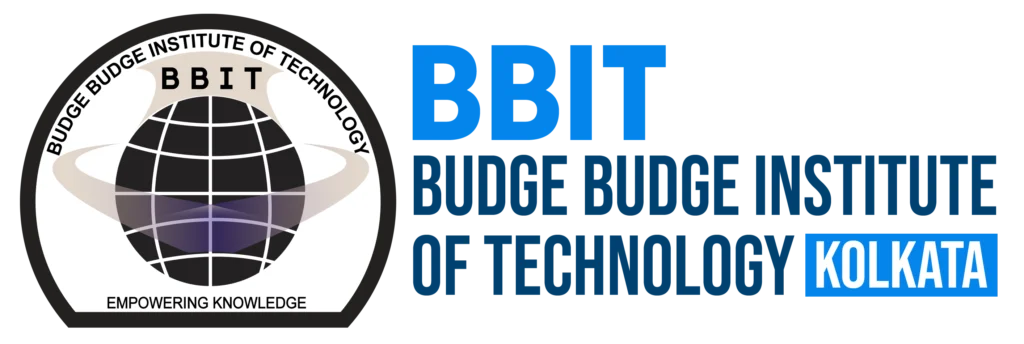Become Leaders of Tomorrow!
BBIT College offers an MBA in Financial Management, a comprehensive 2-year full-time program with a specialized focus on finance. This MBA program is designed to equip students with the essential skills required by contemporary banking and finance institutions. It emphasizes the development of competencies across four key dimensions: domain expertise, technology, application, and customer service. As one of the leading MBA colleges in Kolkata for placement opportunities, BBIT College provides core training along with key certifications. This course is aimed at preparing students to be highly skilled and ready to excel in the dynamic world of business and finance.

Program Outcomes (POs):
Integrative experience and experiential learning:
Formulate an integrative business project through the application of multidisciplinary knowledge.
Problem analysis:
Identify, formulate, review research literature, and analyze complex management problems, reaching substantiated conclusions using decisions based on creative thinking.
Design/development of solutions:
Design solutions for complex organizational problems and design system components or processes that meet specified needs with appropriate consideration for public health and safety, and cultural, societal, and environmental considerations.
Effect of global environment on business:
Employ effective cross-cultural communication and manage differing business practices and social conventions. Demonstrate awareness of international business activities and customs, and adapt to various global business environments.
Social, legal, and ethical responsibilities of organizations and society:
Analyze the impact of decisions on stakeholders, applying diversity frameworks and understanding global business contexts. Implement ethical principles and evaluate corporate social responsibility, considering economic, environmental, political, legal, and regulatory contexts.
Strategic and innovative thinking skills:
Develop novel products, processes, or organizational forms by identifying and solving problems using qualitative and quantitative methods. Assess environments and opportunities, and align business activities to implement strategic changes in complex and uncertain conditions.
Effective oral, written, and presentation communication skills:
Prepare logical and relevant arguments and demonstrate professional interaction and communication skills through effective oral and written presentations.
Ethics:
Apply ethical principles and commit to professional ethics, responsibilities, and norms of business practice.
Individual and team work:
Function effectively as an individual, and as a member or leader in diverse teams and multidisciplinary settings.
Communication:
Communicate effectively on complex business activities with the business community and society at large, including writing effective reports, making presentations, and giving clear instructions.
Functional business knowledge:
Analyse and apply accounting information for strategic decision-making. To manage firm growth through financial decision models and strategies like mergers, acquisitions, and new venture development.
Life-long learning:
Recognize the need for, and have the preparation and ability to engage in independent and life-long learning through delivering an appropriate skill set.
Program Specific Objectives (PSOs):

Critically analyze complex power system scenarios and propose solutions using acquired theoretical and practical knowledge.

Work on defined projects by interpreting power system data to provide real-time solutions to system issues

Identify optimal solutions to enhance power transfer capability, improve power quality, and ensure reliability.
This program is ideal for individuals passionate about manufacturing and designing power systems, who possess strong problem-solving abilities and a desire to pursue rewarding careers in electrical system design, development, and maintenance, ensuring quality, safety, reliability, and sustainability.
Program Educational Objectives (PEOs) of MBA Department:
Domain Knowledge:
To equip postgraduates in MBA with fundamental concepts of core domain subjects like marketing, finance, and human resource management, along with technical competency to work effectively in various managerial domains.
Communication:
The students would receive thorough exposure on how to groom themselves to become industry-ready and effective techniques on how to meet and greet industry professionals for interviews.
Projects and Case-Based Learning:
To provide practical exposure by working with real-time cases and facilitate regular industrial training and industry visits to meet the basic requirements of the management process.
Research and Development:
To encourage management graduates to undertake various research and development work and benefit society in turn.
Global Perspective:
To conduct an analysis of the political, economic, social, technological, legal, and environmental factors relevant to strategic decision-making for a global organization. Also, to evaluate and develop recommendations regarding corporate business strategy for an international market.
Leadership and Interpersonal Skills:
To demonstrate effective leadership and interpersonal skills in a team environment. Recommend actions that improve organizational effectiveness.
Program Specific Outcomes (PSOs) of MBA Department:
Core Courses:
Application of multidisciplinary knowledge comprising finance, operations, systems, marketing, and human resources management to integrate business projects.
Optional Elective Courses:
Usage of business metrics to evaluate business projects and develop growth strategies.
Workshops & Seminars:
Empower students to innovate and execute business ideas during challenging business situations.
Potential Job Roles
Accounting Manager:
Oversees the accounting department, manages financial reporting, and ensures compliance with accounting standards and regulations.
Financial Analyst:
Analyzes financial data to assist in decision-making, investment planning, and financial forecasting.
Finance Officers & Treasurers:
Manage the organization’s financial health, including cash flow, investments, and financial planning.
Chief Financial Officers (CFOs):
Directs the overall financial strategy of the organization, including budgeting, reporting, and risk management.
Investment Bankers:
Provide strategic financial advice to clients, assist in raising capital, and manage mergers and acquisitions.
Investing Sales Traders & Associates:
Execute buy and sell orders for securities, manage investment portfolios, and provide investment advice.
Cash Managers:
Manage and optimize the organization's cash flow, ensuring liquidity and efficient use of funds.
Credit Managers & Specialists:
Oversee the credit granting process, assess creditworthiness, and manage the credit portfolio.
Corporate Controllers:
Supervise the preparation of financial statements, manage accounting records, and ensure accuracy and compliance.
Investment Banking Associates:
Assist in raising capital, advising on mergers and acquisitions, and managing investment portfolios.
Insurance & Risk Managers:
Assess and manage risks, develop risk mitigation strategies, and oversee insurance policies.
Management Consultants:
Provide expert advice to organizations on improving efficiency, solving complex problems, and enhancing business performance.
Program Overview & Structure
Theory:
- Finance for Non-Finance
- Personal Journey for Excellence
(Strength Finder and Training Need Identification Workshop) - Joy of Management
- Micro-Economics
- Business Statistics
- Marketing and Consumer Behaviour
- Excel Spreadsheet Modelling
- Written Analysis and Communication
- Sankalp – Social Entreprenurship Project
- Learning R
- Organizational Behaviour
- Financial Statement Analysis and Reporting
- Business Research Methodology
- Operations Research
- Macro Economics & Policy
- Business Communication & Presentation Skills
Theory:
- Costing Products and Services
- Synthesizing and Analyzing Data using R
- Managing Operations and Supply Chain
- Human Resource Management
- Indian Banking and Financial Markets
- Marketing of Products and Services
- Managing Financial Resources
- Bringing Ideas to Market
- Strategic Management
- Project Management
- Data Science Using R and Python
- Critical Reasoning and Systems Thinking
- Selling, Negotiation and Persuading Skills
Theory:
- Personal Journey for Excellence (Strength Finder and Training Need Identification Workshop)
- Management of Design
- Business Model and Intellectual Property
- Elective-1
- Elective-2
- Elective-3
- Elective-4
- Elective-5
- Elective-6
- Elective-7
- Managing Stakeholders and Legal Processes
- Problem Solving and Consulting Skills
Practical:
- Summer Internship – 08 Weeks
- Applied Business Research (Till Module 8)
- Global Module Track -International Business @ Summer School Abroad
- Capstone Simulation
Theory:
- Analyzing and Mitigating Risk
- Elective-8
- Elective-9
- Elective-10
- Ethics and Indian Ethos
- Leveraging IT for Business
- Strategic Management
- Indian Economy in the Global Context
- Leadership Development
- Business Valuation and Modelling
- Advanced Corporate Finance
- Behavioral Finance and Technical Analysis
- Derivatives and Financial Risk Management
- Mergers and Acquisitions
- Wealth Management
- Alternate Investments and Portfolio Management
- Credit Analysis and IPO Analysis
Project:
- Integrated Decisions Making
- Applied Business Research Project
- Sankalp- Social Entreprenurship Project
Eligibility Criteria
Graduation: A bachelor's degree with a minimum of 50% marks from a recognized university.
English Communication: Proficiency in English communication is required.
Entrance Exams: One of the following:
- SUAT: Successful completion of the SUAT (Online Test).
- MAT: A score in the 75th percentile or above.
- CAT/XAT: A score in the 65th percentile or above, followed by a Group Discussion and Personal Interview.
Fees Structure
24 Months EMI
₹4,583*
Interest free
Per Semester Fee
₹27,500*
Full Program Fee
₹1,65,000
Meet our Top Rank Faculties

Prof. Biswanath Bhattacharjee
Assistant Professor, MBA, Finance

Prof. Pramanand Pandit
Assistant Professor, MBA, Finance

Prof. Somdatta Guha
Assistant Professor, MBA, Finance
Upraise your Career Now with BBIT's M.Tech Program.


Vision
To develop the MBA Department into a progressive center of management education that imparts quality learning and provides sustainable solutions to contemporary business and societal challenges.

Mission
To equip students with fundamental management concepts and skills through application-based, innovative pedagogy. We aim to create an environment of academic excellence, research, and innovation that benefits students, faculty, and external stakeholders. Our mission includes developing intellectual capital that is both scholarly and practice-oriented to meet the needs of the evolving socio-economic environment. We are committed to providing transformational learning experiences that foster responsible, ethical thought leaders, and to building strong relationships with employers to bridge the skill gap between industry and academia.

